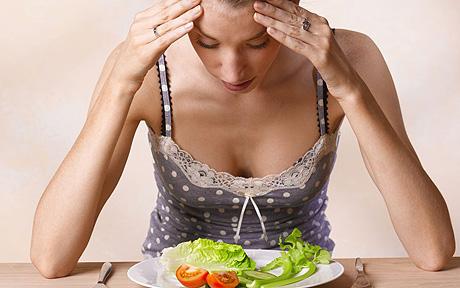- Calls to this hotline are currently being directed to Within Health, Fay or Eating Disorder Solutions
- Representatives are standing by 24/7 to help answer your questions
- All calls are confidential and HIPAA compliant
- There is no obligation or cost to call
- Eating Disorder Hope does not receive any commissions or fees dependent upon which provider you select
- Additional treatment providers are located on our directory or samhsa.gov
Danger of the Clean Eating Trend Among Food Bloggers

Trending among many popular social media platforms, the concept of “clean eating” has taken off in the mainstream media in multiple forms.
It is not uncommon to hear this discussed among food bloggers, health professionals, lifestyle coaches, and more in an attempt to promote health and wellness. What exactly does it mean to “eat clean”, and how can this concept become potentially dangerous for someone who may be struggling or susceptible to developing an eating disorder?
Clean Eating Dieting Trend
A recent survey conducted by Today’s Dietitian and Pollock Communications on “What’s Trending in Nutrition”, found that the “clean eating trend” was found to be the most popular nutrition trend in 2016 [1]. This nutrition trend tends to focus on avoiding highly processed foods, artificial ingredients, preservatives, and additives, and the consumption of foods that are whole and minimally processed. Other aspects of clean eating include eating small, frequent meals, and incorporating exercise as part of a healthy lifestyle.
While on the surface, eating clean seems conducive to a healthy lifestyle, this can easily become a slippery slope for someone who might be susceptible to developing an eating disorder. The description of this trend itself as “clean” somehow implies that a person can become “pure” or morally good by eating certain foods. The reality is that eating is simply not a moral issue, and choosing to eat some foods over others cannot somehow make a person good or clean.
When Nutrition Trends Go Too Far
 Social media feeds filled with beautifully staged photos of perfected plates of food can daunting, even intimidating. The bottom line is that food is food, whatever the source, and following a dieting trend that advocates for cutting out or restricting entire food groups cannot set up a person for success in the long run.
Social media feeds filled with beautifully staged photos of perfected plates of food can daunting, even intimidating. The bottom line is that food is food, whatever the source, and following a dieting trend that advocates for cutting out or restricting entire food groups cannot set up a person for success in the long run.
When following a food trend, like “clean eating” becomes an obsession, it is important to take a clear look at what might be happening in order to help prevent more serious issues from erupting.
 About the Author:
About the Author:
Crystal Karges, MS, RDN, IBCLC is a Masters-level Registered Dietitian Nutritionist (RDN) with a specialty focus in eating disorders, maternal/child health and wellness, and intuitive eating. Combining clinical experience with a love of social media and writing, Her passion is to help others find recovery and healing is integrated into each part of her work.
As a Certified Intuitive Eating Counselor, Crystal has dedicated her career to helping others establish a healthy relationship with food and body through her work and nutrition private practice.
References:
[1]: Thalheimer, Judith C. “Hottest Nutrition Trends of 2016: Clean Eating”, Today’s Dietitian, Vol. 18 No. 6 P. 37The opinions and views of our guest contributors are shared to provide a broad perspective of eating disorders. These are not necessarily the views of Eating Disorder Hope, but an effort to offer discussion of various issues by different concerned individuals.
We at Eating Disorder Hope understand that eating disorders result from a combination of environmental and genetic factors. If you or a loved one are suffering from an eating disorder, please know that there is hope for you, and seek immediate professional help.
Last Updated & Reviewed By: Jacquelyn Ekern, MS, LPC on February 21, 2019
Published on EatingDisorderHope.com

The EatingDisorderHope.com editorial team comprises experienced writers, editors, and medical reviewers specializing in eating disorders, treatment, and mental and behavioral health.

